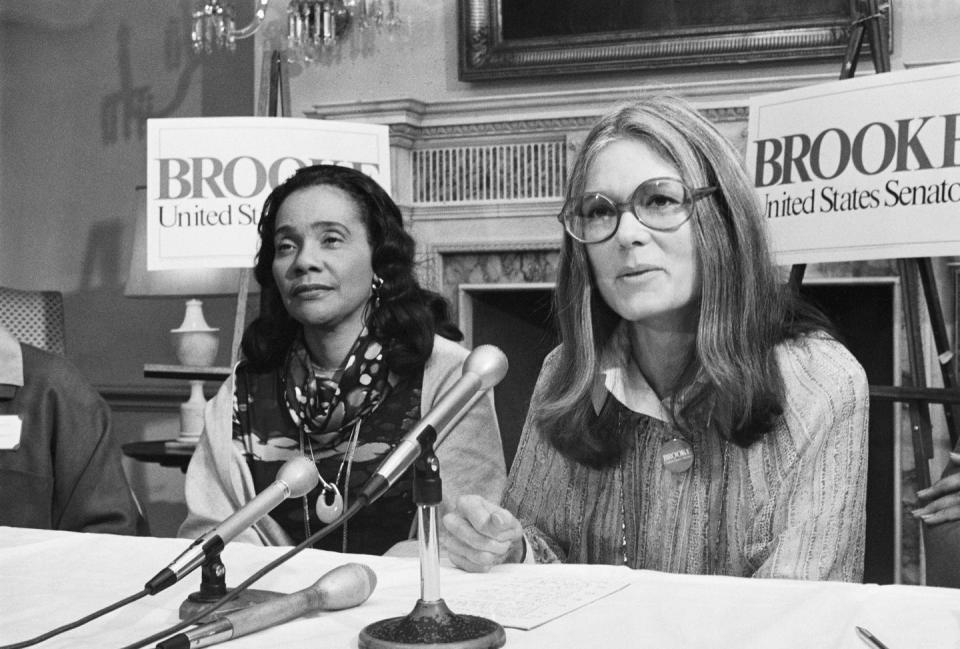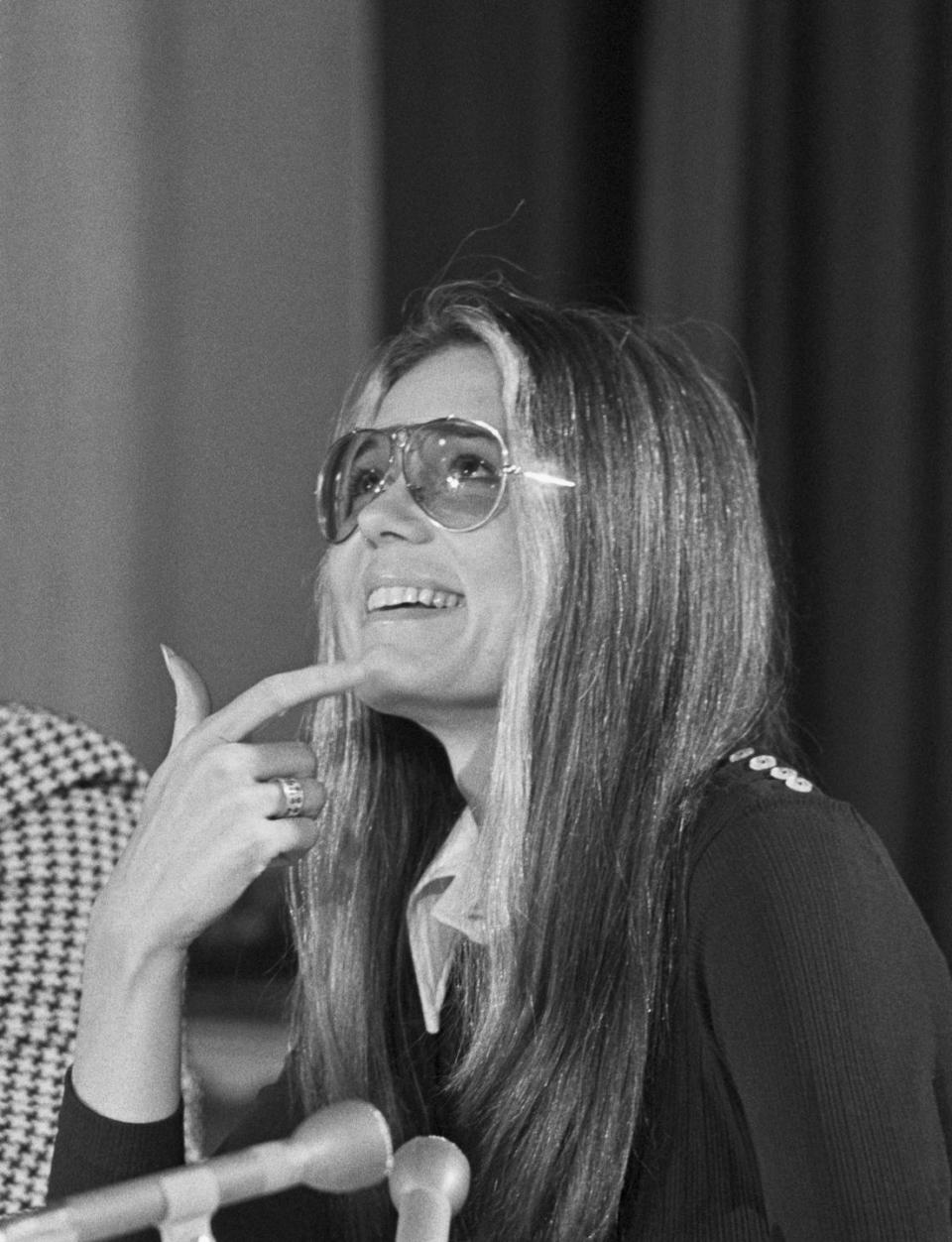Rose Byrne Thought The 'Mrs. America' Showrunner Was "Crazy" for Asking Her to Play Gloria Steinem

Whether horrified or thrilled by it, you know the power Gloria Steinem holds. The Toledo, Ohio-born free spirit, who helped form the vanguard of second-wave feminism, was vilified for all the reasons she was beloved. She was considered "too pretty" for politics, yet her brand of feminism was more generous and intersectional than many, if not most, of her predecessors. She could never step forward without facing attack, but few political figures have retained as much influence as she has for more than 50 years.
Watching her portrayal by Damages actress Rose Byrne in FX’s captivating new series, Mrs. America, is like stepping into the room with a legend. The show depicts the almost-forgotten 1970s battle between feminists—including Steinem, Betty Friedan, Shirley Chisholm, and Bella Abzug—and anti-feminist conservatives like Phyllis Schlafly, over the proposed Equal Rights Amendment.
Showrunner Dahvi Waller (Mad Men) combed through books, newspapers, magazines, photos, archival footage, and more to build an accurate replica of Steinem, who was not consulted personally for the show. Says Waller, “I wanted to write the show from multiple points of view and be in different perspectives from episode to episode. I felt if I sat down and talked to anyone, I was beholden to their version of events.”

Which is why it’s so impressive that Byrne nails her performance as Steinem, everything from the way the icon wears her enormous glasses to the dry, wry cadence of her voice. The actress collaborated with Waller to accurately portray the details of Steinem’s life, but when she was first approached with the role of a lifetime, she was hesitant to accept. “I initially was like, are you crazy? How on earth could I play that part? She’s so iconic and intimidating,” Byrne said on a conference call with reporters, including BAZAAR.com.
Capturing the feminist's signature look took a lot of work. Byrne’s first fitting with costume designer Bina Daigeler lasted four or five hours. Daigeler "just had so many images,” Byrne said. “She was just so informed about Gloria.”
One of the most important wardrobe choices? Steinem’s oversized '70s-style rims, which she wears in many of her most famous photos. “I have a totally different shaped face” than Steinem, Byrne said. “We were trying to avoid being a caricature. But once we narrowed down on the right pair of glasses, that was ground-breaking.” And as for Steinem's middle-parted hair, Byrne said she had to test several wigs before landing on the right one.

Steinem, for all her leadership and professionalism, also had her quirks. Byrne says she was known to be able to fall asleep anywhere, and she threw things at the television out of frustration. But her slight Midwestern drawl, with its rough elegance and quiet power, was one of her most interesting and magnetic traits.
Byrne worked with vocal coach Kate Wilson from The Juilliard School for two and half months before Mrs. America started filming. “It was a long process … just running the lines with her, listening to her, working on the vowels,” the actress said. The result was an impeccable transformation from Byrne’s graceful Australian accent to the recognizable Steinem sound.
Karen Karbo wrote in her book In Praise of Difficult Women that Steinem “was (and still is) despised by conservatives (some of whom think that feminism is an evil capable of bringing down the nation). But many of her own feminist sisters were openly disgruntled with the media’s interest in Gloria. New thinking, radical ideas, bold analysis, and a collective of raised consciences were supposed to float the feminist boat—and not a woman who so thoroughly rocked a miniskirt.”
Byrne found this both enlightening and horrifying as she tried to get into character. “I mean, she was married to the movement,” she says. “To have that dedication and to survive that sort of scrutiny … Throughout the course of the show, that really took me by surprise. I didn’t realize the torture she went through, whether the feminists were attacking her, or the media was attacking her, or men attacking her, or the lawsuits, or the fallout with the magazine. Just the scrutiny that she was under, the microscope she was under. It was extraordinary.”
Byrne believes the story of Steinem, Schlafly and others is still not over: The Equal Rights Amendment still hasn't passed, sexual discrimination is a daily occurrence for women, and politics are still as divisive as they've ever been.
On the Mrs. America set, the ERA's legacy was a topic of frequent discussion—and it served as a rallying cry for making the show as precise and inspiring as possible. Byrne says,“We did often sit around on set going, 'Wow.' We’re still talking about the same things in 2019 when we shot it, as we are in the show.”
The first three episodes of Mrs. America are streaming on Hulu now. Watch
You Might Also Like

